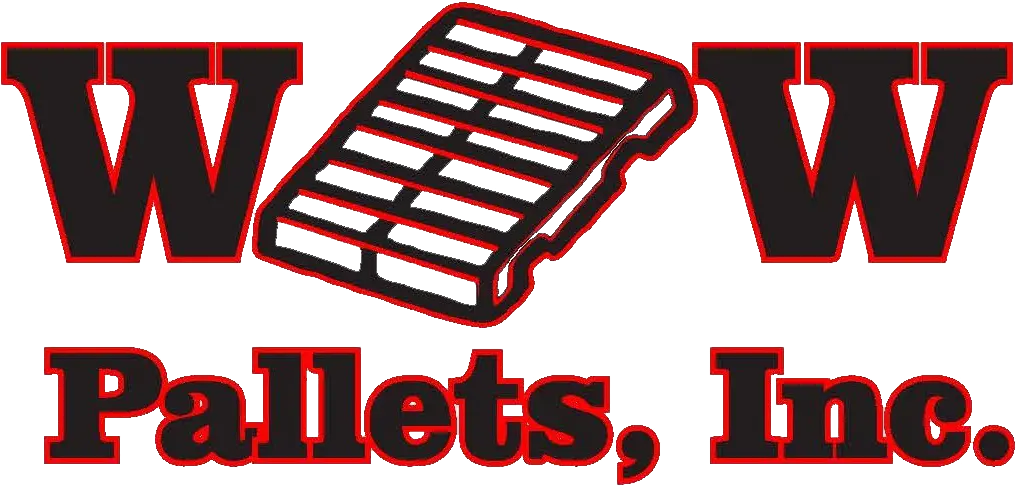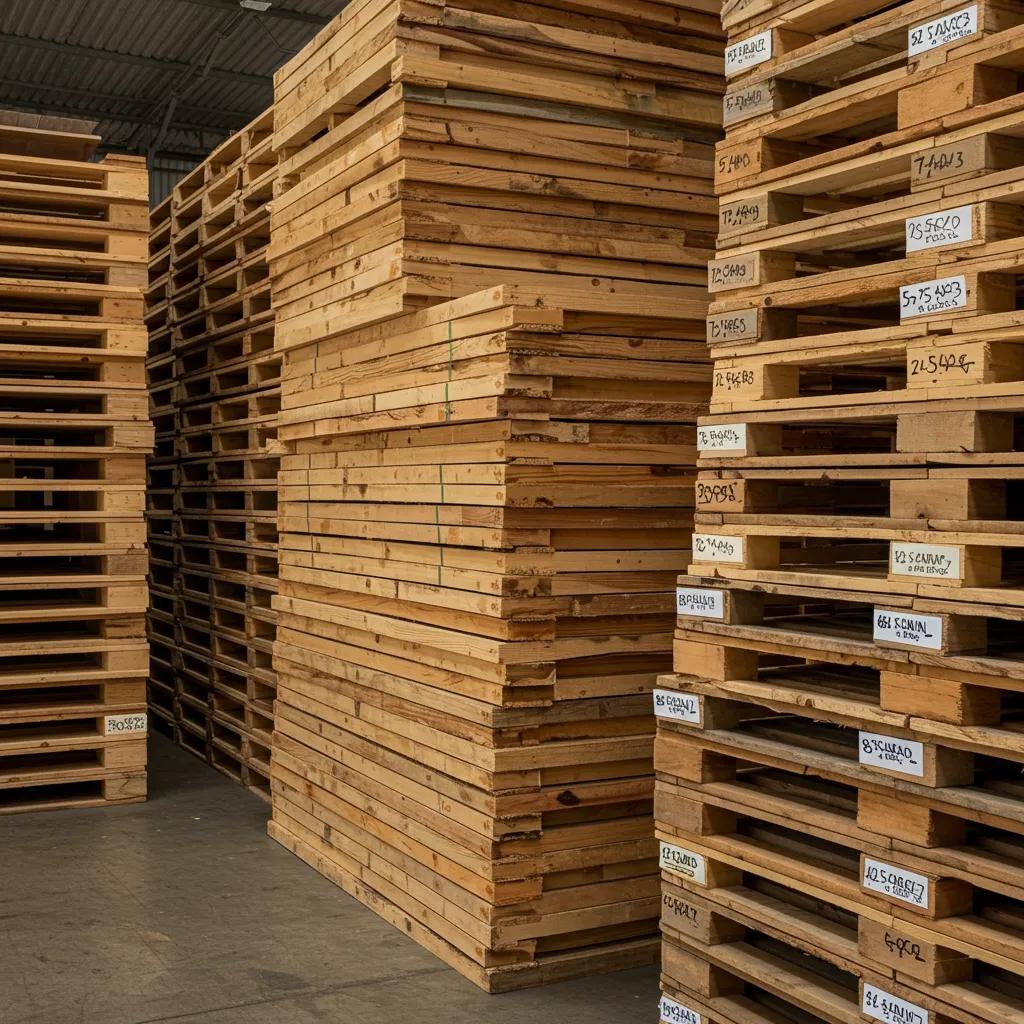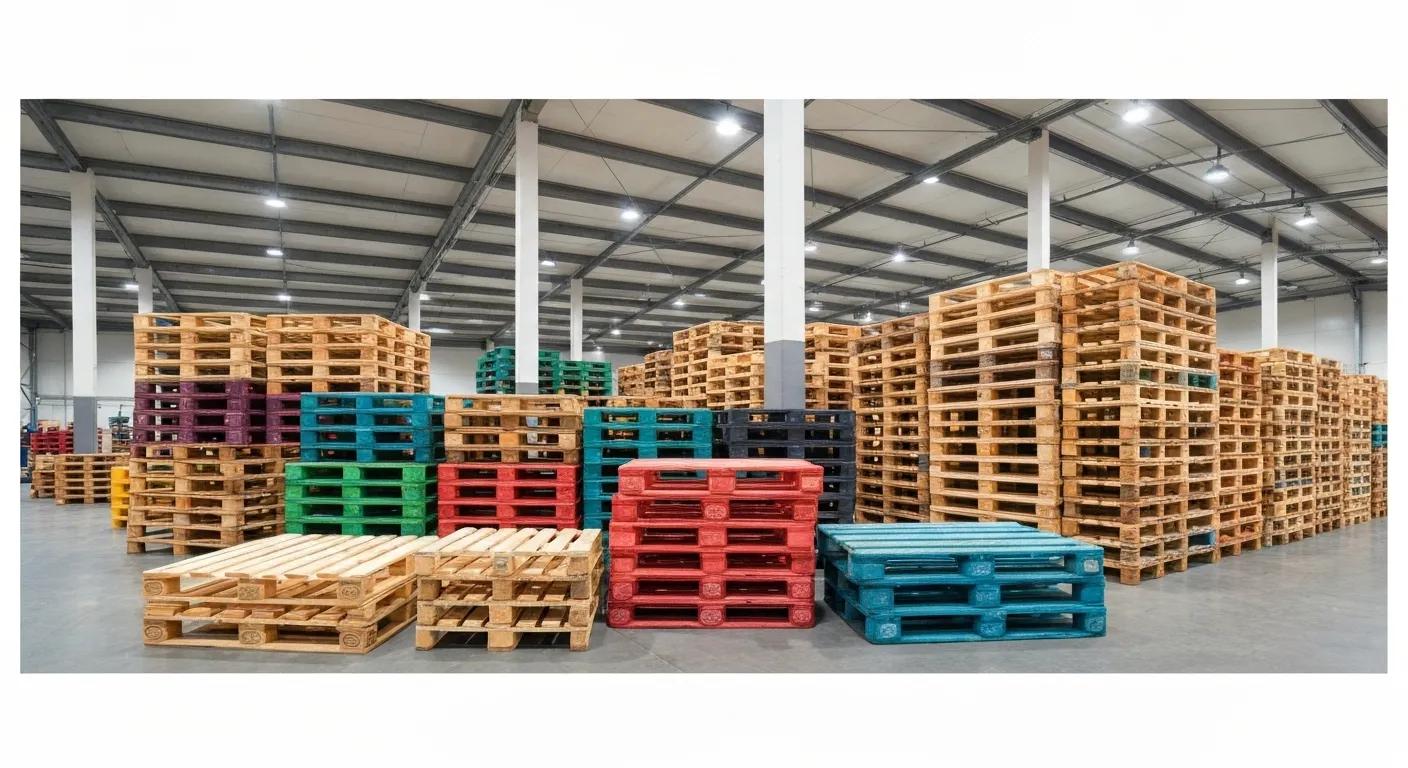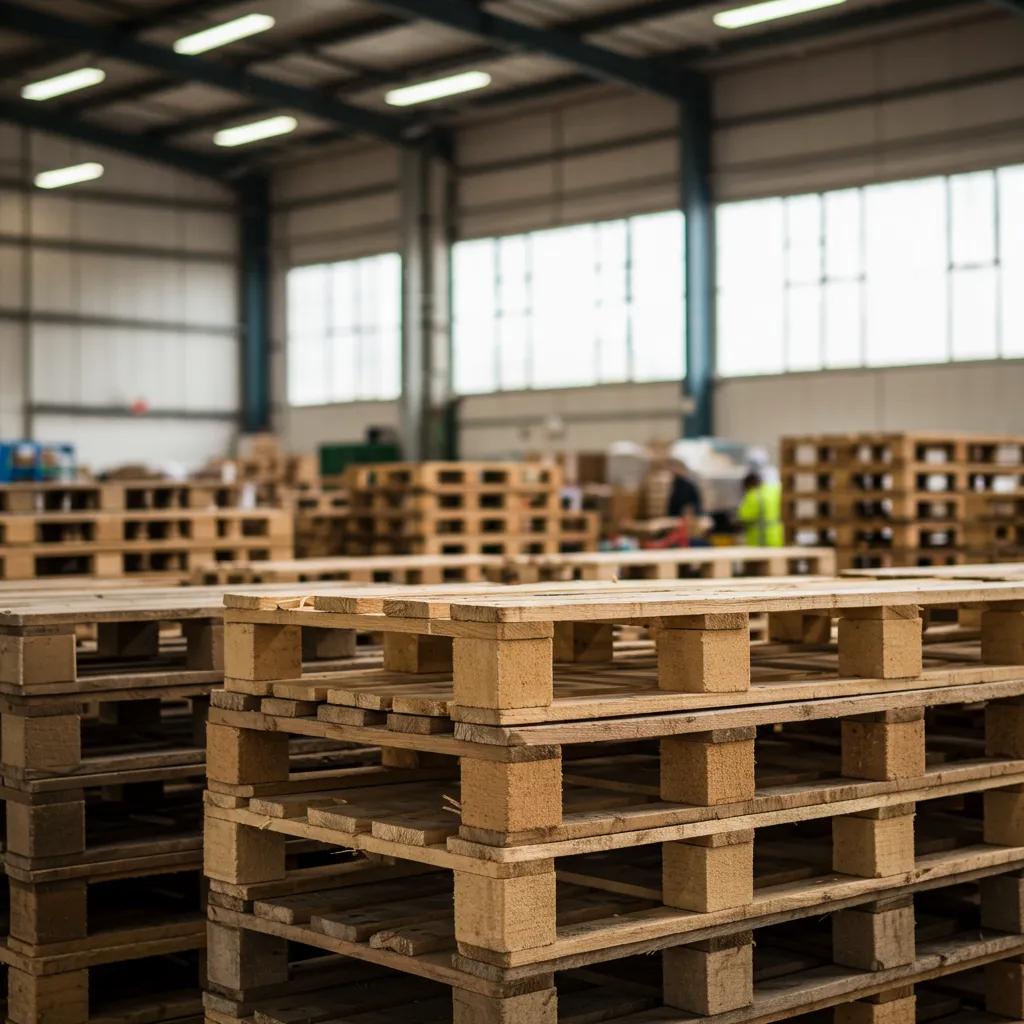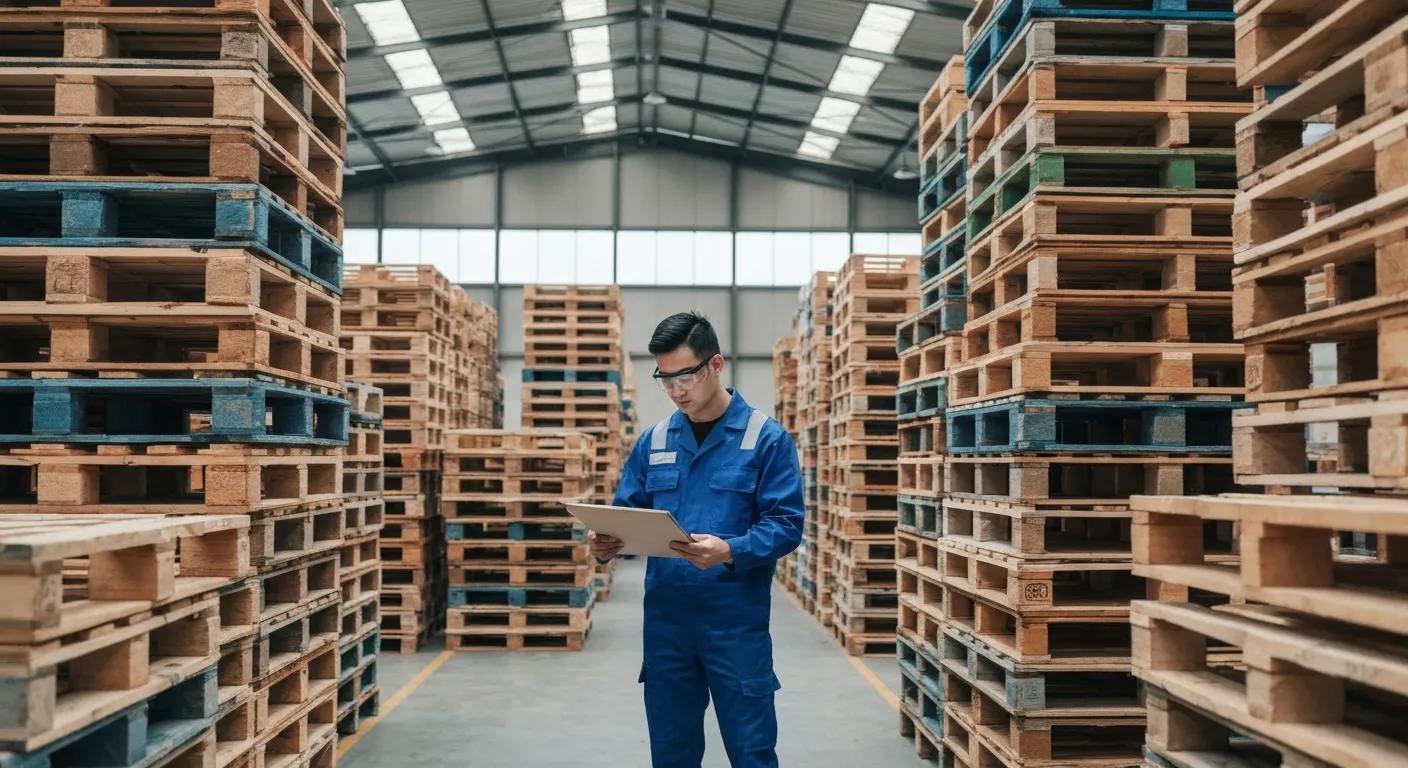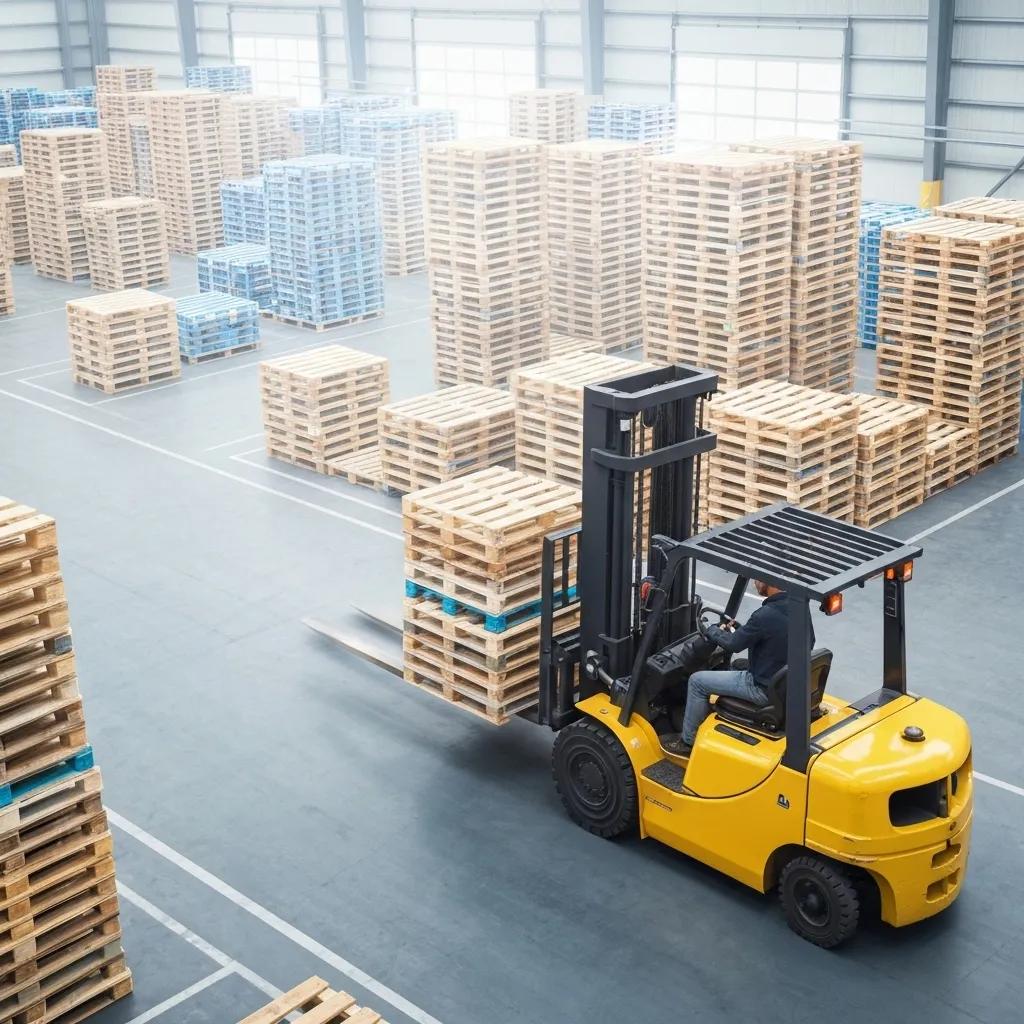
Reliable Pallet Solutions for Lakeland Warehouse Managers Near County Line Road & Lakeland Linder Airport
Warehouse managers around County Line Road and Lakeland Linder Airport face costly delays when pallet supply falters. Reliable pallet solutions ensure uninterrupted operations by delivering durable, compliant, and cost-effective material handling platforms right where you need them. In this article, you will learn where to buy quality pallets in Lakeland, how heat-treated pallets guarantee ISPM-15 export compliance, what custom designs streamline your unique loads, how fast delivery supports airport logistics, why recycling boosts sustainability and savings, which standard sizes fit most warehouses, and how WW Pallets’ local expertise secures your supply chain. Addressing shortages, regulatory hurdles, and efficiency gaps, this guide equips you with actionable strategies and pallet options to keep your warehouse running smoothly.
Where Can Warehouse Managers Buy Quality Pallets in Lakeland Florida?
Identifying a reliable Lakeland pallet supplier starts with evaluating product range, service responsiveness, and local delivery capability. Warehouse managers near County Line Road can source new, used, or recycled pallets from a single local partner to ensure consistency and minimize lead times. Reviewing available pallet types clarifies which options align with your inventory turnover, load requirements, and budget constraints.
What Types of Pallets Are Available for Lakeland Warehouses?
Pallet varieties in Lakeland span material, condition, and certification to suit diverse warehouse demands. Selecting the right pallet reduces handling risk, supports load stability, and aligns with your operational budget. For example, a high-turnover distribution center may prioritize new 48×40 hardwood pallets for dependable support on standard forklifts.
Below is a comparison of common pallet categories and their core attributes:
| Pallet Category | Material | Primary Benefit |
|---|---|---|
| New Wood | Hardwood | Maximum durability |
| Used | Softwood | Cost savings |
| Recycled | Mixed wood | Eco-friendly circular use |
Each pallet category offers unique advantages for handling, storage, and cost control. Understanding these distinctions leads naturally to evaluating performance factors like load capacity and durability.
How Do New Pallets Benefit Warehouse Operations Near County Line Road?
New pallets deliver consistent dimensions, superior load capacity, and extended service life, making them ideal for high-traffic warehouses. Standardized sizes like 48×40 inches ensure seamless compatibility with automated racking systems and common shipping configurations. For instance, a fresh hardwood pallet can sustain static loads over 3,500 lbs, reducing the risk of structural failure during stacking.
Choosing new pallets near County Line Road eliminates variability and supports precise inventory management. With their uniform quality, new pallets lay the foundation for reliable order fulfillment and reduced maintenance downtime.
Why Choose Used Pallets for Cost-Effective Warehouse Solutions in Lakeland?
Used pallets offer budget-friendly alternatives while retaining sufficient structural integrity for many applications. Grade A used pallets maintain near-new condition, whereas Grade B pallets provide deeper discounts for lighter loads. For example, repurposed Grade B softwood pallets can handle up to 2,000 lbs, cutting per-unit cost by 30–50%.
Opting for used pallets near Lakeland balances cost pressures with operational needs. When integrated correctly, remanufactured options extend asset value without compromising safety or performance.
How Do Heat Treated Pallets Ensure Compliance and Reliability for Lakeland Export Shipping?
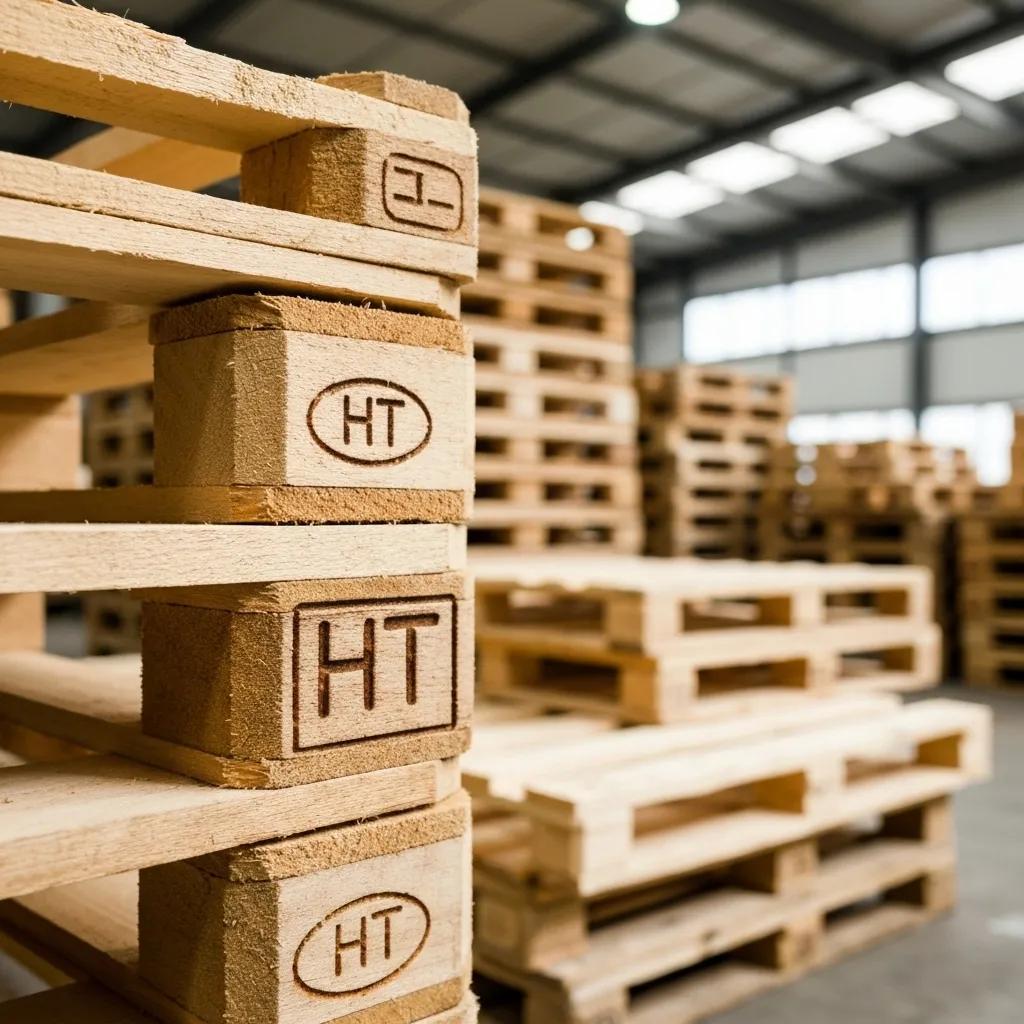
Heat-treated pallets certified under ISPM-15 prevent pest transmission by raising the wood core temperature to at least 132.8 °F for 30 minutes. This process removes biological contaminants and satisfies international phytosanitary standards, reducing customs delays at Lakeland Linder Airport. Understanding certification details guides export-focused warehouse managers toward compliant pallet selection.
ISPM 15 Heat Treatment for Wood Packaging Material
The International Standard for Phytosanitary Measures No. 15 (ISPM-15) requires wood packaging materials, including pallets, to be heat-treated to a minimum core temperature of 56°C (132.8°F) for at least 30 minutes. This treatment is essential for eliminating pests and pathogens, thereby mitigating the risk of their international spread and ensuring compliance in global trade.
This research directly supports the article’s explanation of ISPM-15 certification and the specific heat treatment requirements for export compliance.
What Is ISPM-15 Certification and Why Is It Important for Lakeland Businesses?
ISPM-15 certification mandates heat treatment of wood packaging to eliminate invasive species, protecting global ecosystems and meeting import regulations. Regulatory bodies require the “HT” stamp on each pallet, confirming compliance. For example, shipments from Lakeland to Europe or Asia must use ISPM-15 pallets to clear customs without additional fumigation.
Securing ISPM-15 certification in Lakeland streamlines cross-border logistics and avoids costly hold-ups. Recognizing this requirement ensures your pallets maintain credibility in international freight lanes.
How Does Heat Treatment Prevent Customs Delays at Lakeland Linder Airport?
Heat treatment deactivates wood-boring insects and pathogens that trigger inspections or rejections at export checkpoints. Warehouses near the airport benefit from on-site or partner facilities that apply uniform heat-sink processes, stamping pallets with the internationally recognized “HT” mark. This reduces detention times and inspection fees, expediting cargo throughput.
By integrating heat-treated pallets into export workflows, logistics teams eliminate unpredictable customs holds and maintain predictable delivery schedules.
Which Pallet Types Are Available with ISPM-15 Certification in Lakeland?
Lakeland suppliers offer heat-treated versions of standard new wood and custom wood pallets, ensuring full compliance without altering foundational designs. Customers can request ISPM-15 treatment for block, stringer, or four-way entry configurations to match load and handling requirements. For instance, a custom 48×48 block pallet can be heat-treated to carry heavy machinery parts overseas.
Access to diverse ISPM-15 pallet types empowers warehouse managers to combine export readiness with tailored material handling solutions.
What Custom Pallet Solutions Does WW Pallets Offer for Unique Warehouse Needs in Lakeland?
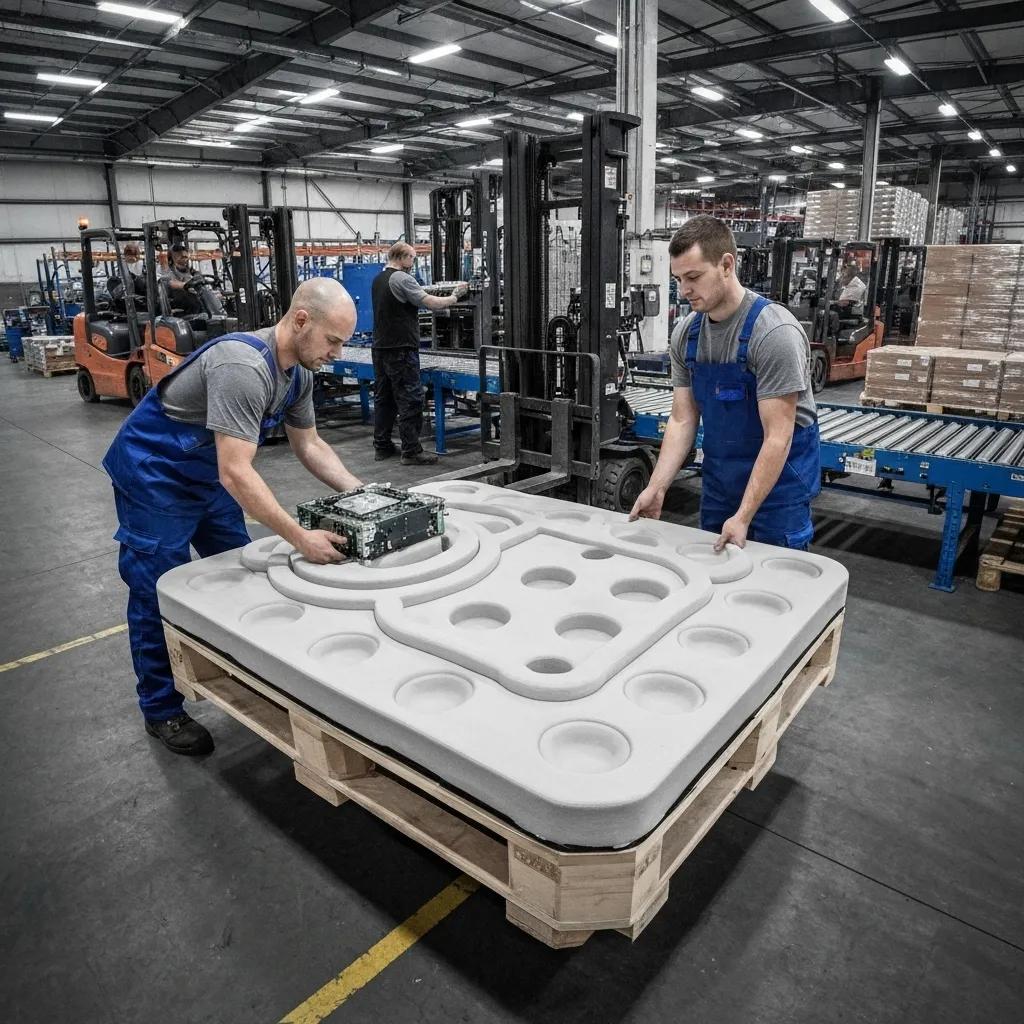
Custom pallet design enables warehouse managers to address non-standard loads, streamline handling, and optimize storage space. WW Pallets collaborates on size, material, and capacity specifications to match bottles, drums, or automotive components, ensuring safe transport and minimal handling adjustments.
How Can Custom Pallets Optimize Supply Chain Efficiency Near County Line Road?
By specifying dimensions, reinforcements, and entry points, custom pallets eliminate wasted space and reduce load shifts during transit. For example, a custom stringer pallet sized at 60×36 inches with reinforced sideboards can support 4,000 lbs of bottled goods without manual blocking. This precision design accelerates forklift cycles and enhances rack compatibility.
Tailoring pallets to your unique footprint streamlines warehouse workflows and reduces material waste, creating measurable efficiency gains.
Which Industries Benefit Most from Custom Pallet Designs in Lakeland?
Custom pallets serve bottling, automotive, aerospace, and specialty packaging industries that handle irregular shapes or heavy payloads. Bottlers gain from nestable pallet bases; automotive suppliers rely on heavy-duty reinforced decks; electronics manufacturers appreciate anti-static composites. These industry-specific configurations support safety protocols and handling standards.
Recognizing these use cases highlights how custom pallets integrate seamlessly into specialized production and distribution networks.
What Is the Process for Ordering Custom Pallets from WW Pallets?
WW Pallets follows a five-step process:
- Consultation – Define load requirements, material preferences, and handling methods.
- Design Draft – Produce detailed drawings and specifications for approval.
- Prototype Build – Fabricate sample pallets for in-field testing and feedback.
- Production – Manufacture finalized pallets in batch quantities.
- Delivery – Coordinate local transport to your facility near County Line Road.
How Does Pallet Delivery Service Support Warehouse Operations Near Lakeland Linder Airport?
Reliable pallet delivery combines scheduling precision with route optimization to supply Lakeland warehouses on demand. Same-day, next-day, and emergency options guarantee pallet availability for inbound and outbound shipments at the airport terminal.
What Are the Benefits of Fast and Reliable Pallet Delivery in Lakeland?
Prompt delivery reduces stockouts and prevents production halts by aligning pallet supply with peak shipping windows. Scheduled drops on-site at County Line Road facilities ensure forklift crews never wait for materials. Emergency runs address unforeseen spikes in demand or last-minute export bookings at the airport.
Consistent delivery times underpin efficient warehouse planning and bolster service levels for downstream customers.
How Does WW Pallets Manage Local Delivery Routes for County Line Road Warehouses?
Leveraging real-time routing software, WW Pallets optimizes runs to minimize transit time and fuel use while covering all service areas around Lakeland Linder Airport. Dedicated drivers handle pallet loading and placement, coordinating directly with warehouse teams to streamline offloading. This local expertise reduces missed appointments and strengthens long-term reliability.
An optimized network ensures pallets arrive when and where you need them without manual intervention.
What Are the Steps to Schedule Pallet Delivery with WW Pallets?
- Inquiry – Contact sales with order volume and delivery timeframe.
- Quote & Confirmation – Receive cost estimate and schedule confirmation.
- Dispatch – Pallets are loaded and routed based on your specified time window.
- Delivery & Inspection – Drivers verify pallet condition and obtain acknowledgment.
- Feedback – Provide operational insights to refine future deliveries.
Why Is Pallet Recycling Essential for Sustainable Warehouse Management in Lakeland?
Pallet recycling repurposes wood materials, reduces landfill waste, and lowers procurement costs, supporting a circular economy. By choosing recycled pallets, warehouse managers conserve resources and demonstrate environmental stewardship to stakeholders.
Sustainability and Recycling of Wooden Pallets
Wooden pallets are recognized as a highly sustainable packaging option due to their significant recycling rates, inherent durability, and diverse end-of-life recycling streams. Studies highlight that a substantial majority of wooden pallets in the United States are recycled, which actively contributes to reducing landfill waste and decreasing the demand for new raw materials.
This research reinforces the article’s claims about the environmental and cost benefits of pallet recycling and its role in sustainable warehouse management.
How Does Pallet Recycling Reduce Costs and Environmental Impact Near County Line Road?
Recycling programs collect damaged or obsolete pallets for refurbishment, transforming waste into reusable assets that cost 20–40% less than new units. This practice cuts disposal fees and reduces raw material demand. For example, a 1,000-pallet recycling run saves over two tons of lumber and prevents 5 cubic yards of landfill contributions.
Embracing pallet recycling aligns sustainability goals with tangible financial benefits across your facility.
What Pallet Removal and Exchange Services Are Available in Lakeland?
WW Pallets offers scheduled pick-up, on-demand removal, and exchange programs that trade in aged pallets for certified refurbished stock. Exchange services maintain pallet quality and consistency, eliminating the administrative burden of disposal and repurchase. Regular pick-up cycles ensure your yard remains clutter-free and ready for incoming shipments.
Streamlined removal and exchange keep operations efficient while reinforcing eco-friendly practices.
How Does WW Pallets Ensure Quality in Recycled Pallet Offerings?
Each recycled pallet undergoes thorough inspection, grading, and structural refurbishment to meet Grade A or Grade B standards. Damaged boards are replaced, nails and fasteners are reset, and moisture content is controlled to industry norms. Quality assurance protocols guarantee recycled pallets perform safely in your racking and shipping systems.
Rigorous refurbishment processes bridge sustainability with operational reliability, leading into standardization considerations.
What Are the Standard Pallet Sizes and Specifications Used by Lakeland Warehouses?
Standard pallet dimensions and specifications simplify material handling, storage optimization, and compatibility with common logistics equipment. Adopting industry benchmarks enhances interoperability among fulfillment centers, carriers, and retail partners in Lakeland.
Why Is the 48×40 GMA Pallet the Most Common Size in Lakeland Warehousing?
The Grocery Manufacturers Association (GMA) 48×40 inch pallet is preferred for its compatibility with grocery, retail, and general warehousing fixtures. Its four-way entry design accommodates forklifts and pallet jacks from all sides, accelerating load transfer. With a static capacity up to 4,600 lbs, the GMA pallet balances strength and accessibility for varied payloads.
Impact of Standard Pallet Sizes on Supply Chain Efficiency
Standardized pallet dimensions, such as the widely adopted 40″ x 48″ GMA pallet, are critical for optimizing supply chain operations. These uniform sizes enhance efficiency in loading and unloading processes, maximize the utilization of warehouse and container space, and ensure compatibility with various material handling equipment, ultimately streamlining logistics and reducing overall costs.
This research supports the article’s discussion on the importance of standard pallet sizes for improving warehouse efficiency and compatibility with logistics equipment.
What Load Capacities and Entry Types Are Available for Lakeland Pallets?
Different warehouse tasks demand specific static and dynamic load capacities, as well as two-way or four-way entry. The table below summarizes common configurations:
| Capacity Type | Entry Style | Typical Value |
|---|---|---|
| Static Load | Four-way | Up to 4,600 lbs |
| Dynamic Load | Two-way | Up to 2,200 lbs |
| Racking Load | Four-way | Up to 2,500 lbs in rack |
Matching entry style and load rating to your storage and handling systems optimizes safety and space utilization. These standardized specifications lay the groundwork for selecting materials that enhance durability. Material insights prepare you to leverage local expertise for tailored support and ongoing improvements.
How Does WW Pallets Provide Local Expertise and Support for Lakeland Warehouse Managers?
WW Pallets anchors its service on deep knowledge of Lakeland’s logistics infrastructure, delivering proactive recommendations and responsive solutions. Local expertise translates into shorter lead times, optimized inventory levels, and rapid resolution of supply chain disruptions.
What Makes WW Pallets a Trusted Supplier Near County Line Road and Lakeland Linder Airport?
Consistent on-time deliveries, rigorous quality checks, and local route optimization distinguish WW Pallets from conventional providers. Warehouse teams benefit from predictable restocking schedules and dedicated account support, reducing the administrative overhead of pallet procurement. Trust is built through demonstrated reliability on every run.
Reliable performance near key logistics hubs cements WW Pallets’ reputation as the go-to local partner.
How Does WW Pallets Address Common Warehouse Challenges in Lakeland?
WW Pallets tackles pallet shortages with emergency delivery options, prevents damaged goods with strict grading protocols, and mitigates customs delays by offering in-house ISPM-15 heat treatment. This holistic approach resolves operational pain points before they escalate, enabling managers to focus on core tasks.
Proactive issue resolution ensures uninterrupted material flow and robust supply chain health.
What Customer Support and Consultation Services Does WW Pallets Offer?
WW Pallets provides expert pallet audits, storage layout recommendations, and regulatory compliance guidance tailored to Lakeland operations. Dedicated account managers facilitate order forecasting and cost analysis to optimize pallet investments. This advisory role extends beyond transactions into strategic supply chain partnerships.
Collaborative support empowers warehouse managers to anticipate needs and implement best practices.
Warehouse managers in Lakeland can transform pallet sourcing from a reactive chore into a strategic advantage. By leveraging WW Pallets’ full suite of new, used, heat-treated, custom, delivery, and recycling services, you secure a reliable platform for material handling across all operational scenarios. Local expertise, compliance assurance, and sustainability initiatives combine to reduce costs, speed operations, and strengthen your supply chain’s resilience. Implementing these pallet solutions now ensures your facility remains agile and efficient amid evolving logistics challenges.
